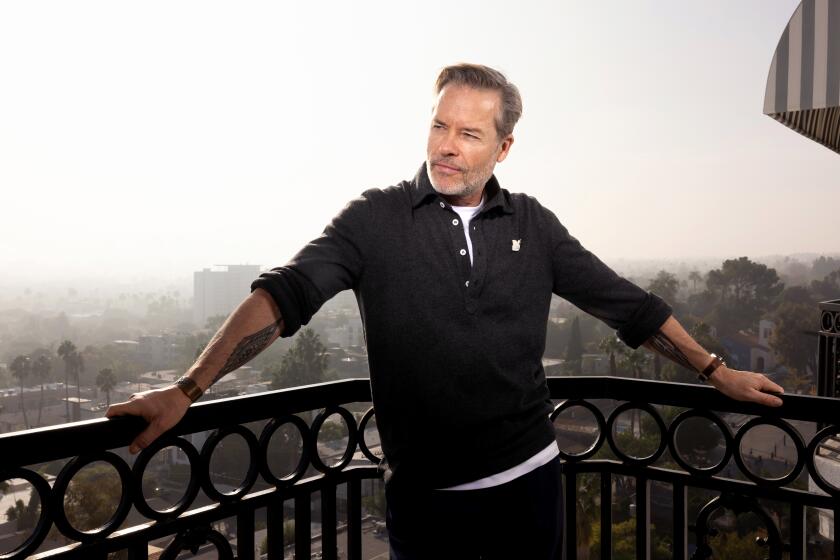Review: ‘Elvis & Nixon’ hits the wrong tonal notes in revisiting historical encounter
- Share via
It’s the stuff speculators and dramatists dream of: fleshing out what happened in the Oval Office on Dec. 21, 1970, between visiting pop idol Elvis Presley and President Richard M. Nixon. The photo commemorating this puzzled-over encounter between two major historical figures with decline in their grasp, remains the most requested image in the National Archives. But “Elvis & Nixon,” a new film mixing the real and the possible in their meet-up, turns an eccentric what-if scenario into a not-so-memorable what-of-it.
That winter morning, a serious-minded Elvis (Michael Shannon) showed up at the northwest gate of the White House with friend Jerry Schilling (Alex Pettyfer) in tow, seeking a clandestine sit-down with Nixon (Kevin Spacey) over what the singer saw as a morally declining nation. Elvis’ solution: Send him undercover to infiltrate the counterculture, and make it official with a federal badge. Shocked at the request but sensing an opportunity, Nixon deputy counsel Egil “Bud” Krogh (Colin Hanks, appropriately stiff and nervous) tried to persuade the culture-averse commander in chief that an Elvis photo-op would be a youth-vote plus.
Though this setup of entertainment courting politics and vice versa in a dance of crossover credibility is an undeniably rich one, especially considering how hybridized those worlds are now, “Elvis & Nixon” meanders its way into the big encounter with a tone too wacky and cutesy to whet our appetite for strangeness.
Director Liza Johnson’s flat tone does little for an already dull screenplay by Joey Sagal, Hanala Sagal and Cary Elwes that seems trapped between wan sketch comedy and blasé reenactment. The weak caper music, sprinkled on like an afterthought, doesn’t help.
Where this movie has any chance of igniting discussion is in the offbeat casting of Michael Shannon, whose weirdly desiccated performance is more Christopher Walken-via-Johnny Hallyday than a charismatic barnburner mellowing the lights for a deeply felt solo turn serenading the leader of the free world.
It’s a Jim Jarmusch-ready turn — one long note of blank loneliness, only occasionally affecting — that keeps an already jumbled movie from ever sparking. (This is a shame, since Johnson did such a fine job with Shannon in her Iraq vet drama “Return.”)
Spacey, meanwhile, given less screen time, helps turn the eventual face-to-face into, thankfully, the movie’s best scene: his Nixon is a crisply funny mini-portrait in seething grumpiness, softened over an unexpected bond: anti-communism and wayward youth. He proves it’s possible to underplay Nixon and still hit all the right notes.
Elsewhere, a subplot about Schilling feeling torn about being tethered to his famous pal barely registers, while putting Johnny Knoxville in as Elvis posse member Sonny bears no kooky fruit. Faring better is Tracy Letts as a suitably bewildered head of the Bureau of Narcotics and Dangerous Drugs (the DEA’s predecessor), listening to Elvis explain his grand plan to help America. Letts’ facial expressions — Is this real? It is? — should be ours for all of “Elvis & Nixon,” but this disappointing movie prefers to smirk its way through an oddball slice of history than mine it for something wryly illuminating.
More to Read
Only good movies
Get the Indie Focus newsletter, Mark Olsen's weekly guide to the world of cinema.
You may occasionally receive promotional content from the Los Angeles Times.










